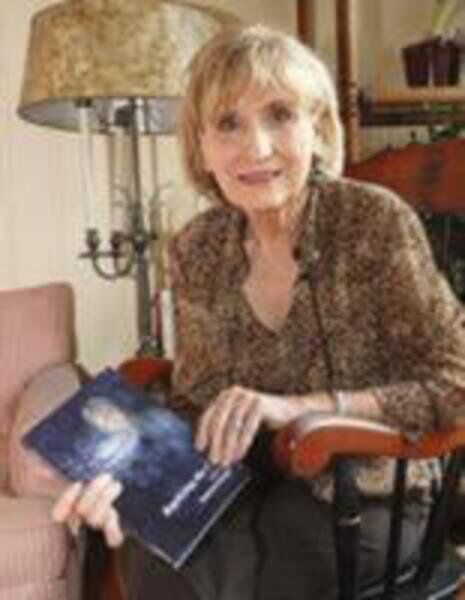GEORGE: Remembering the poetry of Seaborn Jones
Published 7:00 am Saturday, June 10, 2023

- Submitted photo: Roberta George
As a person and a publisher, I have a confession to make: I have never really understood most of Seaborn Jones’ poems.
I loved them but I really didn’t understand why and I still don’t. Much of today’s poetry is complete gobbledygook and I don’t get them and they don’t speak to me and I resent it because I’ve always loved poetry.
Yes, and after all these years, I still love Seaborn’s poems and they still speak to me.
I knew Seaborn, back when Snake Nation Press was born in 1989, and I liked him. He was a very likable fellow.
When he found out that Jean Arambula and I had started Snake Nation Press with the misunderstood word “Snake” in it, he sent us this poem.
Grass, grass, grass, grass, grass,
grass, grass, grass, grass, grass,
grass, grass, grass, snake, grass
grass, grass, grass, grass, grass
Seaborn was a Marine and also a naturalist with the Museum of Arts and Sciences in Macon, Georgia, but mostly he brought snakes to the museum for the children to learn about snakes.
Later, I found out that he was the recipient of two Individual Artis Awards in Poetry from the Georgia Council for the Arts and was also selected as Georgia Author of the Year by the Georgia Council of Authors and Journalists.
And he was, once upon a time, the Alan Collins Scholar in Poetry at the Bread Loaf Writer’s Conference in Vermont.
I like to think that Georgia, like Ireland, is an incubator for writers, especially poets. By my own take, we have currently living amongst us five really excellent poets: Trent Busch, William Fuller, Robert Earl Price, Maria Arambula, and — though not a native Georgian — John Guzlowski. We just published his book, “Small Talk.” Beautiful drawings and understandable poetry.
Seaborn was only 66 when he passed and I was not surprised since he smoked like a chimney and always, if he wasn’t teaching children, had a cigarette in his hand. But it was the way it was back then. Seaborn had been a Marine and all servicemen were encouraged to smoke.
One of Seaborn’s best and most understandable poems is “Semper Fi.” Dedicated to Frank Kern, it tells of a drunk former Marine calling everyone he knows in the middle of the night, all his relatives and friends and even wrong numbers, which he calls back to make sure. Finally, the Marine gets Parris Island, S.C., and a Sgt. Baker, who at last tells him exactly what he needs to hear.
Seaborn, like our local artists, Dean Poling, and Wilby Coleman, had a talent for titles. Anyone reading the newspapers is pulled in by Dean’s imaginative and apt titles of his work. And once, Wilby was told by a fellow artist, that he didn’t need to bring in his sculptures, that his titles were good enough to win prizes.
Here are some of Seaborn’s kickers: “I Feel So Good I’m Changing My Name to James Brown,” “This is Not a Poem,” “Home is Where You Hang Yourself,” “This Poem is Not For You,” “The Clothes Make The Poet,” “Lost Keys, Coffee and Guns.”
Some of Seaborn’s poems are hysterically funny. “The Workshop” one of Seaborn’s most humorous and best poems is about an amorous dog at an Episcopal minister’s home.
And, since I’ve been known to lose everything at one time or another, “Lost Keys, Coffee, and Guns” seems meant especially for me.
Now, I’m just finding out that Thrift Books and Amazon are selling Seaborn’s book, “Lost Keys” — our publication — for $33.32, and two used copies for $29 each.
Well, Snake Nation Press can do better than that. Visit our website, snakenationpress.org, and order your book, “Lost Keys.” I promise it will be a permanent treasure and speak to you.
Roberta George is the founding publisher of Snake Nation Press and a former executive director of the Annette Howell Turner Center for the Arts.



